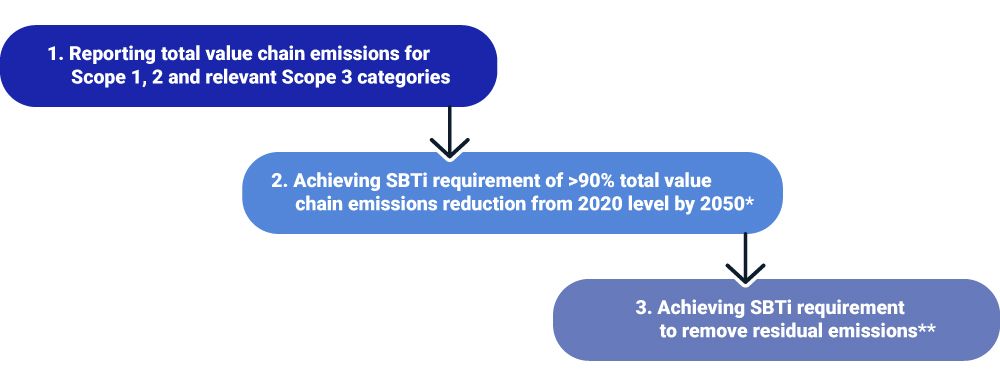The Road to Science-Based Corporate Net-Zero Target Setting
Research Paper
September 23, 2022
Preview
What challenges do companies face in setting science-based net-zero targets under the Science Based Targets initiative (SBTi)'s corporate net-zero standard? This information also could help institutional investors mitigate portfolio exposure to carbon risks. The SBTi standard offers guidance to companies on setting their targets in line with the 2015 Paris Agreement. In this report, we assessed the challenges that companies may face in setting science-based net-zero targets under the SBTI standard.
Three key challenges in the science-based net-zero target-setting process

* Target year is 2040 for power generation sectors. ** residual emissions mean emissions sources that remain unabated in a specific year of a mitigation scenario. Source: MSCI ESG Research Notes
Read the full paper
Read the full paper
Provide your information for instant access to our research papers.
Implementing Net-Zero: A Guide for Asset Owners
Pension funds, sovereign-wealth funds, insurance companies and other institutional owners of capital are committing to reduce financed emissions across their portfolios. This guide from MSCI ESG Research outlines concrete steps to help asset owners convert climate commitments to action.
Breaking Down Corporate Net-Zero Climate Targets
Companies are increasingly setting "net-zero" climate targets. In this guide, we offer an analytical framework to assess decarbonization targets, including net-zero targets. We find that it is not always easy to make valid comparisons.
Climate and Net-Zero Solutions
A set of tools to help investors understand how climate change could affect their portfolios, identify low carbon investment opportunities, and set net-zero targets.
The content of this page is for informational purposes only and is intended for institutional professionals with the analytical resources and tools necessary to interpret any performance information. Nothing herein is intended to recommend any product, tool or service. For all references to laws, rules or regulations, please note that the information is provided “as is” and does not constitute legal advice or any binding interpretation. Any approach to comply with regulatory or policy initiatives should be discussed with your own legal counsel and/or the relevant competent authority, as needed.
